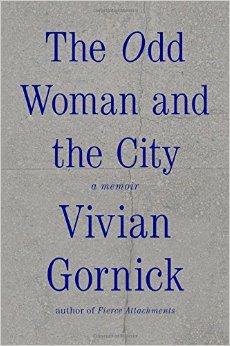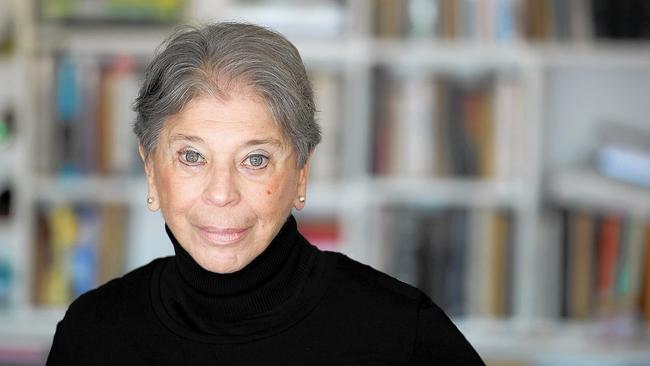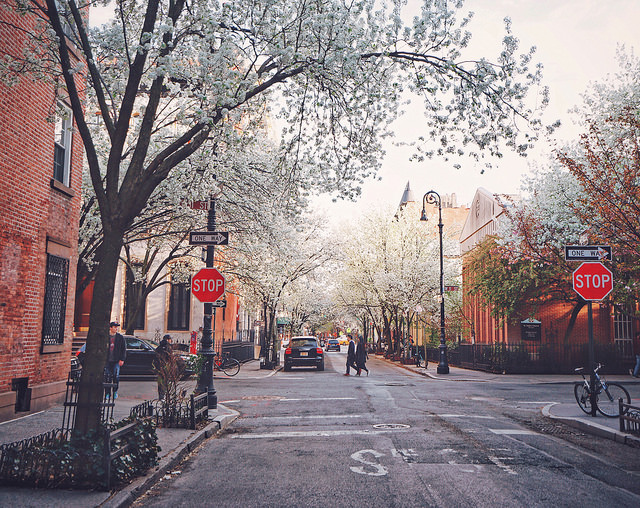This Christmas I received the new memoir by Vivian Gornick, The Odd Woman and the City. (The city in question is Manhattan.) It’s a book I’ve been eager to read, being a Gornick fan of many years. I read the young Gornick when she wrote for The Village Voice, documenting fiery protests of Second Wave Feminists. Later I read her mother-daughter memoir, Fierce Attachments, and her 1997 celebrated critique, The End of the Novel of Love.
 The “odd woman” of the title is taken from an 1893 novel by George Gissing. It’s centered on an early feminist who couldn’t make peace with the existing world—something Gornick admits to struggling with her entire life.
The “odd woman” of the title is taken from an 1893 novel by George Gissing. It’s centered on an early feminist who couldn’t make peace with the existing world—something Gornick admits to struggling with her entire life.
I would have preferred the title, “The Old Woman and the City,” since Gornick reflects on what New York has taught her in her 80 years of living there. She pays homage to the city streets, walking up to six miles a day—treks taken to combat loneliness, which afford her time for daydreams and opportunities for unexpected human encounters, of which New York rarely disappoints her.
Gornick is a keen observer of city life, relishing in the range of exchanges she encounters, like the time she was on a city bus when the bus driver forced off the entire company of riders just because an elderly male passenger stubbornly refused to admit he hadn’t paid his fare. Another time, when lost in her daydreams, she fails to notice an oncoming truck. In the nick of time she is lifted off the street and plunked down on the sidewalk by a large burly man with soft blue eyes.
I was fascinated by Gornick’s intellectual ruminations, but could find her overly analytical nature exhausting. I found myself talking to her, “For God’s sake, Vivian, let it go!” Or, when she confessed to yet another love affair gone South, or to a female friendship that dissolved, I screamed, “What did you expect? You’re so ambivalent about intimacy.” Not that I have figured out closeness for myself. On the contrary, I identified with many of her struggles, but I think I know when to give up the ghost.
Gornick is addicted to finding answers, which aren’t always there. The up side to this addiction is an admiration for her vulnerability and for assisting this reader to clarify her own position on life’s ultimate conflict between the ideal and the real.
Gornick is not always serious. She displays the wit and irony of a lifelong New Yorker. She can be very funny, especially in her conversations with Leonard, her gay friend. While Gornick had two short marriages in her younger years, she and Leonard have a long-standing rich spiritual union, where they thrive on mutually satisfying conversation, a lack of judgment and witty repartee. Maybe the lesson is that intimacy takes many forms. Gornick doesn’t have to feel like a failure for not establishing the romantic connection of her girlish dreams.


